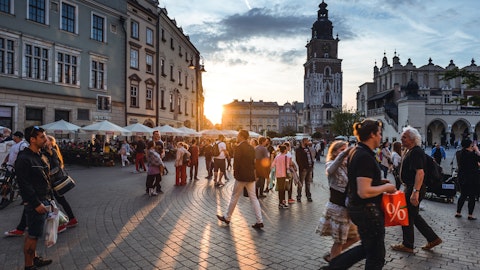In this article, we will take a look at the 25 worst smelling countries in the world.
Of all the human body senses, smell seems to be the most personal, as it can be inextricably related to our memories. It can be both pleasurable and alarming; they are receptive. According to some studies, kissing may have evolved from a need to initially smell a partner before the lips ever met. The same is true for the scent of a nation or city. Paying attention to odors expands our ability to experience places and cultures on a whole new level. Our views of a certain country may be greatly influenced by the smell of that nation, which may be either a red flag or a green flag. Either way, it will undoubtedly influence our decision about whether to travel to that country again or not. However, it is sad to say that only a few people pay attention to this. Thus, in this article, the top 25 worst countries in the world will be exposed.

Photo by krakenimages on Unsplash
Our Methodology
In this article, our intention was not to categorize any nation as one of the smelliest places in the world. We extensively researched and analyzed 16 sources (1 2 3 4 5 6 7 8 9 10 11 12 13 14 15 16) to come up with the 25 worst smelling countries in the world. Each place that was mentioned in the sources received a single point. These points were subsequently utilized to arrange these locations in a ranking, resulting in the compilation of the 25 worst smelling countries in the world. You can also take a look at the 22 Most Depressing Ugliest Places in the World to have an idea of which countries not to visit on your next trip.
25 Worst Smelling Countries in the World
25. Japan
While Japan is an ideal travel destination for many, especially those individuals who are into modern technology and anime, it is noteworthy to remember that Japan houses the biggest fish market in the world. Thus, you might want to reconsider this country’s red flag if you’re one of those people that finds the smell of seafood repulsive.
24. Egypt
With its ancient wonders like the pyramids and the enigmatic Sphinx, Egypt is a must-visit. However, it’s essential to be aware that, like many other bustling places, some areas in Egypt face challenges related to pollution, waste management, and unpleasant odors.
23. Brazil
If you’re sensitive to strong odors, you might consider avoiding some areas in Brazil where the smell from interconnected waste pipes can create an unpleasant experience. Despite the diligent efforts of engineers over the years, it’s still noticeable that the waters and lagoons in certain places don’t have the most pleasant smell.
22. Myanmar
In Myanmar, the chewed betel nut can create a distinct and pungent atmosphere that some travelers find rather off-putting. The smell is often described as unpleasant, adding an element of discomfort for those not accustomed to it.
21. Colombia
The smell of Colombia’s mid-twentieth century might not be to everyone’s liking. In certain cases, its major cities can have a distinct odor due to the interplay of unique winds and rain patterns, which some might find unpleasant. The country’s positioning, nestled within the equatorial belt and bordered by both the Caribbean Sea and the Pacific Ocean, has a profound influence on its climate and weather patterns. These interactions could occasionally lead to concentrated and lingering odors that some might find less than agreeable. Columbia’s urban smell is often described as a mix of humidity, vegetation, and industrial elements.
20. Iceland
Icelanders are proud of their water source and are occasionally offended by tourists who criticize its smell. Because Iceland’s hot water is geothermal, it occasionally emits a sulfurous odor. The warm water produced by geothermal power facilities is suitable for bathing but not for consumption. Thus, Icelanders have access to two sources of both hot and cool water. The geothermal water of Iceland is renowned worldwide. However, the odor can catch some individuals by surprise.
19. Croatia
Croatia’s Yellow Ginkgo trees, with their vibrant colors, may deceive you at first glance, but the reality is that their presence can result in a rather off-putting smell, often likened to the scent of vomit. These trees are widespread in many areas of the country, contributing to an atmosphere that some may find less than pleasant.
18. France
Based on a study, 43% of French men and women do not shower daily, as reported by the Daily Star. A quarter of the French acknowledge showering once every 48 hours, while 11 percent shower every three days and 8 percent shower once every four days. In addition, a large number of the streets and areas have an unpleasant odor near stations or gardens.
17. Spain
In Spain, the air can sometimes be affected by factory fumes, which could be bothersome if you’re sensitive to such scents. If you stay for an extended period, you might find yourself dealing with several unpleasant odors, as the factories from the city’s industrial era continue to emit a range of less-than-pleasant smells. As Spain continues to evolve and embrace sustainable practices, the legacy of its industrial past becomes a reminder of the intricate relationship between human activity and the environment. The diversity of scents found within the Spanish air is a reflection of the multifaceted nature of the nation’s history and its ongoing journey towards a balanced and harmonious future.
16. Portugal
Portugal is renowned for its abundant and aromatic port wine cellars. While the country’s famous cities are known for these impressive caves, they also come with a powerful atmosphere. If concentrated and intense atmospheres aren’t to your liking, it might be best to avoid this place.
15. Turkey
In Turkey, not many people use deodorant. Not everyone, for sure, but most people. A traveler said that the streets of Istanbul are full of trash. Small streets were jammed with cars, causing people to walk on narrow sidewalks, and exhaust was everywhere. Single-use plastics are on the shelves of every store. Everyone smokes and then throws away their used cigarettes on the street. The streets are full of trash, and garbage gathering happens very rarely. All of this goes into the Bosphorus, where people still catch and eat fish. From a distance, there is a thick yellow haze of smog over everything you can see. The quality test also fails to measure the air quality in Istanbul.
14. Morocco
The unpleasant odor in Morocco is often attributed to raw sewage, potentially caused by blocked drains or stagnant water. The smell can be quite distressing, with a consistently stomach-churning effect. Blocked drains, particularly in densely populated urban areas, can lead to the accumulation of wastewater and organic matter, giving rise to the emission of unpleasant odors. The combination of heat and humidity that is characteristic of Morocco’s climate can exacerbate its situation.
13. Denmark
Denmark has a strict fragrance culture where people are often judgmental about both strong and mild scents. If you’re sensitive to smells, it’s best to keep this cultural component in mind when visiting the nation and possibly avoid it if you’re worried about meeting smells that are overpowering. This can really attract unfavorable attention!
12. Trinidad and Tobago
Trinidad is home to one of the Caribbean’s less appealing tourist attractions: the world’s biggest natural asphalt lake, which draws a considerable number of people each year. It is crucial to mention, however, that the unpleasant odor released by this attraction should be considered and may be avoided if you are sensitive to strong smells like this.
11. Vietnam
Transportation is a significant contributor to air pollution, so it’s not surprising that locations like Vietnam smell like diesel exhaust. Occasionally, there were also odors of garbage and leachate. The cuisine also contributes to the odor, which is why Vietnam sometimes smells like fish sauce.
10. Saint Lucia
Saint Lucia is one of the 10 smelliest countries in the world. In Saint Lucia, not all aromatic experiences are tied to fish or eggs. The island has become a global hub for chocolate tourism, a unique form of specialty travel dedicated to exploring and celebrating chocolate. The cacao plantations on the island emit a distinct and delightful smell as the beans undergo the chocolate-making process. While many find this scent pleasant, it could be overpowering for some individuals, making it advisable to consider this factor if you’re sensitive to the strong smell of cocoa.
9. Scotland
Scotland’s Edinburgh, known for its breweries and distilleries, had been grappling with a notable odor issue to the point that in 2009, the city mandated the installation of an “odor-control tower” at the North British Distillery to counteract the strong scent of malt and yeast. While these measures have indeed made a difference, you can still catch a whiff of the city’s distinct smell when the wind carries it in just the right direction.
8. Thailand
There are clogged pipes, diesel, jet fuel, joss sticks (incense), and many fresh and dried spices in Thailand. In the market, you can find fish that is drying, frying, or just sitting on a table. Depending on whether you stay in an air-conditioned hotel in a more upscale part of the city or a hostel in the Banglamphu area, you will be treated to very different “smells” in Thailand. This is especially true of food and food products in Thailand. In Thailand, food stalls on the streets fry chicken feet, fresh durian, and fish heads.
7. Indonesia
If the cuisine is spicy, the atmosphere will likely smell spicy as well. Indonesia is one of these countries due to its fondness for spicy cuisine. Indonesia also has a distinct tobacco odor because so many people there smoke.
6. New Zealand
The beauty of this geyser-filled country can sometimes be overpowered by a peculiar fragrance. Because of its geothermal activity, New Zealand’s Rotorua, often known as the “Sulphur City,” releases a strong sulfuric stench, creating an unpleasant odor that you may wish to avoid if the smell of sulfur bothers you.
5. South Africa
The Seal Island and the Bird Island Nature Reserve in South Africa are among the places that contribute to the country’s occasional foul odor. The less enticing parts of the atmosphere in some places may be a result of animal feces and natural odors.

Pixabay/Public Domain
4. Kenya
Kibera, a city in Kenya, is said to have one of the biggest slums in the world. The lack of a functioning sewerage system caused the locals in this densely populated region to resort to utilizing plastic bags as improvised waste receptacles. This has led to a distinct sanitation issue that has given rise to what are known as “flying toilets.” These bags are filled, then dumped onto neighboring wasteland, creating a peculiar and difficult sanitary scenario. This practice highlights the hygienic issues that informal communities in many regions of the world confront. Due to the absence of a proper sewerage system, the residents resort to using plastic bags as makeshift containers for their waste. Once filled, these bags are then discarded onto nearby areas of wasteland, creating a unique and challenging sanitation situation. This practice sheds light on the sanitation challenges faced by informal settlements in various parts of the world.






